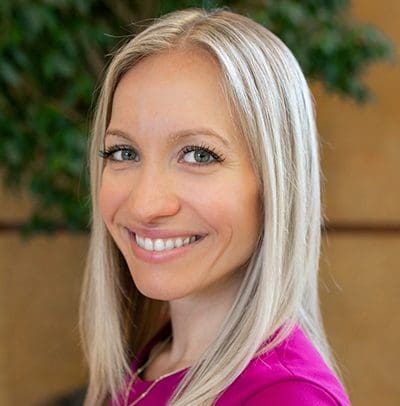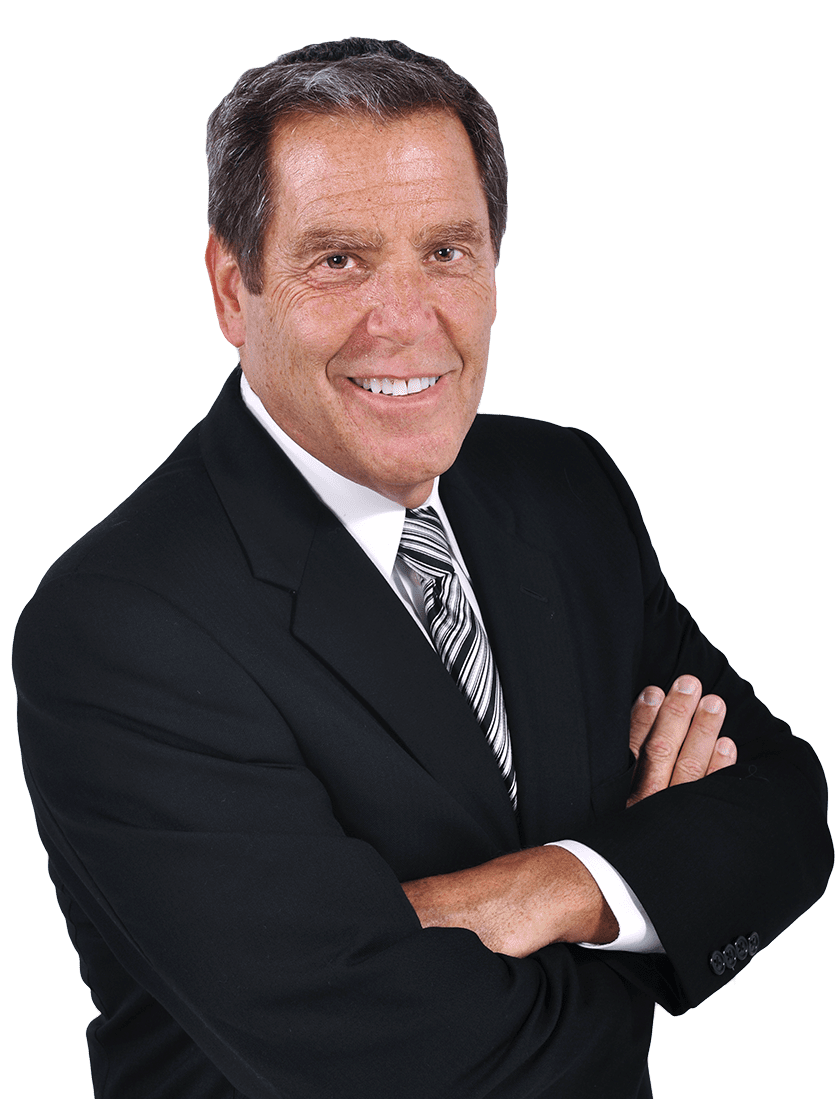Check Out Bill Cates’ NEW Top Advisor Podcast™
Interviews with Top Advisors for Top Advisors!
Top Advisor Podcast™
Ep. #1- From Receptionist to Rockstar: Helping a Team Member Become a Financial Advisor with Alanna Morey, CFP®, AMPA®
In this episode, Bill Cates is joined by Alanna Morey, CFP®, APMA®, private wealth advisor at Siena Wealth Advisory Group. Alanna shares her inspiring journey that took her from living in her car to becoming a financial advisor generating $1.2 million in revenue this year.
Do you have a promising team member who you’re grooming for more responsibility, in the hopes they will become a financial advisor? Are one or more of your team members a diamond in the rough waiting to be discovered?
Want More Top Advisor Podcast Episodes? CLICK HERE!
Alanna discusses:
- How she transitioned her life from living in her car to a position as an administrative assistant, and ultimately to becoming a successful financial advisor in her own right.
- What encouraged her to take a big leap and become a financial advisor.
- How her mentor, Joe DeSena, believed in her more than she did in herself.
- A checklist for creating the right work environment that you can follow to move any and all of your team members forward in their own careers.
Connect With Bill Cates:
-
Show Transcript
BILL CATES: Welcome to the Top Advisor Podcast brought to you by ProudMouth’s Influence Accelerator Academy. I’m your host Bill Cates. In each episode, I interview one of the financial service industries top performers to learn their secrets to sustain success. These short interviews will get right to the heart of what each top advisor is doing to acquire more right fit clients.
You’ll be reminded, renewed, and inspired to take powerful action. You’ll impact more lives and increase your income at the same time. Now onto the show.
Welcome to Top Advisor Podcast, where I interview top advisors for top advisors. Now today’s show is going to be a little bit different than some of my others.
Typically I want my guests to focus on one or maybe two strategies or tactics that are working for them right now. Get into that. And I want to bring specific, actionable ideas that you should consider using in your business. And I generally don’t ask my guests how they got started in this business and other extraneous topics like how many dogs they have and various things that you hear on podcasts. I want to get to the meat of the topic as quickly as possible. But with that said, today is a little bit different. Why? Because today’s guest top advisor has quite a story, quite a journey from living in her car to generating 1.2 million in revenue this year.
That’s a big stretch. That’s a great story. I could say a lot more, but I think we should let her tell her story. Alanna Morey CFP, APMA welcome to Top Advisor Podcast.
ALANNA: Thanks Bill. Thanks for having me.
BILL: It’s great to have you. I’ve been looking forward to this. I learned of you from a referral from Joe De Sena, who will be coming up a couple of times in this conversation. When he told me your story, I said, okay, we’ve got to get her on this show.
I became aware when I was interviewing Joe for his podcast segments and I asked him who would be a good guest. So you were initially hired as an administrative assistant to work with Joe De Sena, I believe is that correct?
ALANNA: Yeah, that’s correct.
BILL: Okay. So tell us a little bit about that time in your life. You had a few challenges going on. You didn’t even think you’d like working in the world of finance yet. But took the job anyway. So give us that phase one early years.
ALANNA: Absolutely Bill. So, Joe hired me one month before my college graduation. I grew up about six hours from where our office was on Long Island. As a young 20 something, I did not want to move back home.
So I was really excited for this administrative assistant position, a foot in the door, but I never thought I work in finance ever. I went to school for marketing. I always used to say, I’m just going to work this job for like two years and then I’ll go find something else that’s more creative, what I like.
So I accepted the job, no money in the bank. Didn’t have a place to live. I had thousands in student loans, credit card debt. I absolutely could have asked my parents for some help, but that’s just not something I was willing to do. During the time I was very blessed to have wonderful friends who let me stay with them because I did not have somewhere to live.
As I was preparing for this conversation, I vividly remember packing up the house I lived on off campus. Packing it up, packing everything into my 97 Ford escort. She was a beaut my 97 Ford escort and I slept alone in the house, nothing in the house at night, put on my little work outfit the next day, hopped in my car, packed. I could not see out of anywhere and drove into the office to work with Joe. And I used to call my car my closet on wheels.
BILL: So you were one of those cars that you see when you’re walking in the grocery store and you see it packed to the gills with stuff asking who lives in this car and why.
ALANNA: That was me. I always parked for the first, at least year, I parked on the other side of the building because I didn’t want anyone to see. I didn’t tell anyone that I didn’t have an address.
BILL: Yeah. Interesting. This concept of self-sufficiency that you had, I guess it’s probably too late to have you mentor my daughter, but I do appreciate it.
ALANNA: Whatever you need.
BILL: Thank you. All right. So you worked as an admin for a couple years, then you started taking on more roles in the office. All right. Let’s call this call this phase two of the career. And I know you did a lot. So give us the picture of this evolution of who will eventually become a superstar. And by the way, I should say to people listening, you may have an Alanna on your team already, you don’t know it. Or you may be not open to seeing it, but she may be there. Anyway, phase two.
ALANNA: So, after about after six months of working there, Joe had asked me to get licensed to get my series 766. So I did that. And once I did that, of course some of it was opportunity motivated for me.
I really liked the opportunity to get to try new things and learn more. But also I knew I’d get a little raise. And in my situation, that was important. So both the two important things motivated me. But once I got licensed, I started taking on more responsibility with our team. Whether it was due to turnover or people left and they needed help filling in different roles. Also that was just the culture of our team, cross-training, you know, making sure that all staff members knew how to do each others jobs in the case of someone being overloaded or out of the office, or they don’t work there anymore. You have people who can step in and help out.
By cross training, I grew into a paraplanner role, a registered role at the firm. I started running the marketing, which of course I love. I loved being able to do that. And then eventually Joe asked me to start sitting in on client meetings with him and really all the advisors on our team would ask junior staff members to sit in client meetings.
First it was just taking notes. The note taker in the meeting. But eventually I realized that I liked it and Joe realized I was good at it. So I would just take on more and more responsibility. And eventually I didn’t really need the advisor in the meeting anymore.
BILL: That’s great. Part of that is Joe. Once he saw that, I think he just, he started asking you to become an advisor, right? Become a full fledged advisor in the firm. He kept asking you and you kept saying no. Tell us about that.
ALANNA: Yeah. And actually it’s funny again, preparing for this, it reminded me of what I always used to say to him, was actually, “we’ll see”.
I said, “we’ll see, you never know”. I never want to shut the door on an opportunity, but I really didn’t think it was for me to become a financial advisor. And I think some of this goes back to, like I said earlier, I never saw myself in finance. I went to school for marketing. I’m a creative, I’m not a stuffy boring wall street person.
BILL: And we’re speaking to some of those people, some of those people are listening.
ALANNA: I know, I know, but I just didn’t see myself fitting into that mold of what that was and what the stereotype was really right. That’s just not me. And I also saw how many advisors ran their practices and to me, the practices were running them.
And I just thought, I don’t know if I would enjoy that. It seems like no balance running around all the time, the practices, the clients are ruling their lives. So I just didn’t think I would like that. We did have a manager in the office at that time, and she gave me a lot of great advice. One piece of advice that’s always stuck with me is she said that you don’t have to be like any of these other advisors and you’re not like them. And that’s why people will like you, do it the Alanna way. And this really made me think, oh okay, you know, maybe I could do this.
I don’t have to emulate these other people. I could just do it my way.
BILL: That’s great. And is that what essentially tipped the scales and you said, okay I can do it the way I want to, I’m in?
ALANNA: Yeah. It really opened my mind more instead of just always thinking one track of how an advisor had to be. That’s not how it has to be. And I think we all know that now, too, seeing the evolution of this business. Even in the past few years. But it doesn’t have to be like that. We’re not out there picking stocks. This is a relationship business and I’m good at relationships. And I love that part. So that’s really made me open my mind to that.
BILL: Yeah. All kinds of personalities and inclinations come to this business and we hopefully emphasize our strengths and hire people to supplement them. You did remind me of something when your answer to Joe was, “We’ll see”. I remember the first time I proposed to my wife, her answer was, We’ll see.
A year later, by the way she said to me, “So like, are we getting married or what? Are you going to ask me again?” And I go, “Ah, We’ll see.” She didn’t remember she said that to me a year before.
ALANNA: That’s funny. Persistence pays off Bill, right? Both examples. There you go.
BILL: All right, so phase one, you graduate college.
You’re mired in debt. No place to live, semi-living out of your car and you take a position as an admin assistant in a financial practice. Phase two, taking on more responsibility. You impress everybody, started cross-training, encouraged to become an advisor, but it didn’t appeal to you at first.
And now we’ll call it phase three. I think this began when Joe suggested that you moved to Naples to help him open his office there because you were in Long Island at the time. Tell us about that. And that’s the big move for you, right?
ALANNA: Yeah, that’s the big move because I remember thinking, okay, I’m either going to move to Naples or I’m quitting. I’m going to do something else. I thought maybe I should just do something else because I’ve reached the peak of really what I could do within our team without becoming an advisor. So what’s next? I thought it’s either an advisor or maybe I should try something else.
I figured if I’m going to take a leap, move to Naples from New York, try out a new career, I should probably do it with a team and people I know that are supportive. That’s why I really thought, okay, I need to take this leap. It’s too great of an opportunity.
I’m a very big planner and Joe knows that. So we put together a project plan for really all the things that I would have to do to become an advisor. Training, how many meetings I’d have to be in, what clients I should reach out to. Things like that. We put together a project plan and really, there were like a hundred things on this project plan Bill, but we just hit all these items that we wanted to accomplish.
In mid 2018. I moved to Naples. I got my APMA. I did my CFP. And then in late 2020 is when I purchased about a hundred million in assets from Joe’s book. And I’m on pace to 1.2 million this year. I’m an advisor now.
BILL: So hold on, hold on, hold on. Time out. You purchased a hundred million of Joe’s book? And you’re on pace to do 1.2 million? How many years is this from the day you accepted the job to today.
ALANNA: To become an advisor?
BILL: To become an advisor. Let’s just go there.
ALANNA: I will be one year in October as an advisor. So October, 2020, I became an advisor.
I started in the industry almost exactly 10 years. After I graduated from college and started in the business as the admin. So quite a lot has changed over the past decade.
BILL: Joe DeSena was like a guardian angel for you on this.
ALANNA: I mean, he would love to hear you say that Bill.
BILL: You’ll play the replay of this for him again and again.
ALANNA: I mean, this is obviously really worked out for both of us Bill here. I’m lucky again, to have a great leader in Joe, with someone to work with. I didn’t have any family on Long Island. I was living on my own out of my car and he recognized that and he helped me out.
One of the houses I stayed at was his, well, he was out of town actually. So I stayed there for a week and I’d only known him for two months, but he found out I was living out of my car and he said, absolutely not. We’re going out of town, stay at our house. He’s really been very supportive and he just saw in me what I clearly wasn’t ready to see for a few years.
And for both of us, Joe is in his early sixties. I’m in my early thirties. Much different points in our lives and careers. And for him, Joe was able to have me help him take parts of his book so that eventually he can transition into his retirement whenever that may be. And I’m able to grow my business as well in that way.
So for us, it really worked out. And I mean, I’ve known a lot of these clients for a decade. They’ve known me too, since I was the administrative assistant. It was an easy transition. They know me and they know that they know I take care of them.
So it’s an easy transition for the clients, for me and for Joe made it easy instead of a stranger.
BILL: Sure. And you bought a new car. You got some cash in the bank.
ALANNA: I bought a new car, paid off the credit cards. I own a house.
BILL: You got engaged.
ALANNA: I got engaged. I even have a cash reserve now.
I can finally practice what I preach to the clients for a long time. I just, you know.
BILL: There’s that old fake it til you make it?
ALANNA: Absolutely.
BILL: And you got a puppy.
ALANNA: Yes, we have a seven month old golden retriever girl. Her name is Wrigley. My fiancé is from Illinois, big Cubs fan. So we have a puppy named Wrigley and she’s amazing. So a lot has changed in a decade.
BILL: Let me tell you then goldens are the best. And I said at the beginning, we weren’t going to talk about dogs. All right. So in a minute, I want to shift the conversation a bit to give our listeners some of your thoughts about how they can create the right environment to grow their team members much in the same way Joe did for you. I mean, everybody’s situation is different, but they may have a superstar there. Or they may be on the lookout for a superstar. But first let’s pause for a quick word from our great sponsor.
[SPONSOR MESSAGE] This podcast is sponsored by ProudMouth, the influence accelerator. It’s tough to be seen as an expert if you’re spending most of your time as a salesperson. That’s why we help industry experts like you spend less time selling and more time advising by turning you into trusted subject matter authority. We help amplify your influence over a growing audience of magnetically attracted fans who will chase you down instead.
Visit ProudMouth.com to learn more.
BILL: You’re listening to Top Advisor Podcast, where I interview top advisors for top advisors. With me today is Alanna Morey.
Alanna, clearly you were working in an environment that allowed you to blossom, right? We talked about Joe being your guardian angel here. They encouraged you. And it sounds like maybe gently pushed you to live in your full potential, into who you’ve become.
So. What words of wisdom, ideas, techniques, perspectives, anything that you think folks listening would like to know to create a similar environment so they can discover their superstar or when they find them nurture that superstar?
ALANNA: Yeah, absolutely. So, something I already touched on, number one on the most basic level, cross training is key for staff members if you have team.
From a pure practice management perspective, this will help your team. If someone’s not in the office, someone leaves, it’s also key for staff development so that they can learn about what everyone else is doing and what’s out there. Putting your team members in front of clients, super important. Junior staff should be in some appointments. Pick out who those clients are. If you’re uncomfortable, ask the client’s permission. I know Joe would say, “Hey, is it okay if Alanna joins us for this meeting? She’s going to help me out.” This will help you be more efficient in meetings. At least have someone to take your notes at the very least, which is what I used to do at first.
But also this could open up the possibilities for you or the staff. Again, I didn’t even really know what being an advisor was until I started to actually go into client meetings. So once you’re in the meeting, you may say, “Hey this staff members really great at this.” Or even the staff member might think, “oh, I really liked this part.”
So this is a great opportunity for them to see that side of things instead of always the backend of staff in the office. Another item would be to share what career paths are out there. I think some people may not know what options are available for them. They don’t necessarily need you to decide now, “Do you want to be an advisor?”. Yes. No.
Let them know what’s out there and the different ways that you could become an advisor too. Obviously for me it wasn’t just a linear path that I knew from day one that this is what I want to do and I work towards it. I bounced around and did everything except that until I finally did it. Career paths, very important.
And then finding out what motivates your staff, regardless of what they want to be, or if they’re a superstar or not. If you want to keep staff, I think it’s really important to know what motivates them, find that out. Is it recognition? Is it maybe positive culture, money, opportunities. For me, it was opportunities for development and for growth. But find out what motivates them. And it’s okay to just ask. I’ve asked plenty of people what their motivation is, what helps them keep going.
BILL: Let me ask you about that. Because everybody thinks everyone is motivated by money. We know that’s not entirely true. Although money is almost always a factor.
What have you seen in yourself and other staff working with Joe and now your own team around money versus other things?
How important is the money as a motivator? Cause they see the advisor making good money, right? And then they’re not making that kind of money, but they’re supporting and they’re thinking the advisor wouldn’t be doing that if it weren’t for me.
ALANNA: Yeah, absolutely. I felt that way myself. Plenty of times. Trust me Bill. But I always felt rewarded for the hard work that I would do, whether it was for responsibility, which tends to happen, right. When you’re good at something, or monetarily always rewarded. We always rewarded our staff and we still do with a bonus of some kind. But I had a staff member recently who told us that she was money motivated. That’s the number one motivator for her. And to me, I was like, oh, okay. No one’s ever just told me that money is their number one motivator.
So what we did for her was we really just gave her certain goals that we wanted her to hit within her job role. And each of those, we had a monetary bonus or reward that was tied to it. Simple, clear, easy to track. So that’s how we did that. But I think it’s just recognizing the hard work your staff puts in, whatever way that you want to do it and rewarding them for it.
It means a lot to people too, to receive a bonus. Especially if they’re an administrative assistant or something and recognizing them for the hard work that they’ve done.
BILL: Well, I want to encourage the folks listening to go rewind and listen to that list. A kind of a checklist that you provided of things that everyone could do to create the right environment.
This is an inspiring story. It’s inspiring to me. I appreciate you being very transparent about this. Tell me a little bit about what was going on inside of you during all of these phases. Right. There had to be self doubt. There had to be courage. There had to be second guessing yourself. I’m curious about the inner game of going from admin to superstar advisor.
ALANNA: Yeah. Self doubt and fear is part of life and it’s definitely held me back. I think that’s part of maybe what took me so long to finally say, “Yes, I’m going to do this.” I always thought I’m too young. I’m not qualified enough. No, one’s going to take me seriously. Why would they trust this 30 year old woman to help them when they’ve been working with Joe who has 30 years of experience? Why are they going to listen to me? And I honestly still hear these thoughts to this day. They have not gone away. It’s always creeping back in and I think it will always be there. But for me, it’s about acknowledging those thoughts and fears that I have and grabbing them and crushing them.
Seriously, I do that all the time because that’s what I do. I up myself talk and tell myself I’m going to get in there and I’m going to kill it. And the way that I faced my fear, as I said, I’m a planner. So what helps me is I practice. I plan, of course we can’t plan everything, this is something Joe always taught me.
He’s a big sports guy. I’m not into sports at all. So I’m not going to try and like name a player or a coach like Joe would do, but he always would say, The best football team won. They go back to the basics. Okay. They go back to the basics, they do their training. They don’t just walk on the field for the big game without practicing.
Even Joe and I together still practice before a new prospect meeting or a big presentation with a client or a presentation out in the community. He’s still practicing after 30 years, I’m going to keep practicing after 10 years, not even a year being an advisor. So for me, that’s what helps me face those fears and those doubts.
But they’re still here. You just have to tell them to leave you alone. You’re going to go in there and take them down.
BILL: Yeah, I kind of likened it to a tape or whatever. People don’t use tapes anymore. CD, no one uses CDs anymore either. An MP3 file, first to play. Right. Turn the volume down you go, “Oh, that’s that part of me? I’m not listening to you anymore.” I turn the volume down.
ALANNA: Yeah, that girl’s annoying. I don’t listen to her. Okay. He doesn’t know what she’s talking about, honestly, so she needs to shut up. That’s what I say.
You know, Bill, I have a question for you. So I know you’ve been in the business for close to 30 years. You’ve coached, you’ve interviewed and helped hundreds, I don’t know maybe thousands of advisors. And actually when I started, you were famous. You’re a celebrity in my office. Cause Joe had all your books. I always heard about Bill Cates. This is a big deal too, that I’m here, Bill.
Okay. But I have a question for you. We all know how much this business has evolved over the past 30 years, even the past two years. But as much as the world and technology has really changed, what’s the one piece of advice that you’ve given to advisors, for the decades you’ve been in this business that still holds true today?
BILL: Yeah. There’s a lot of tactical stuff. There’s a lot of strategic stuff I can think of too. One thing has changed and this is not really answering your question, but these days, the emphasis on introductions, right? We have to get introduced now more because people don’t pick up their phone and there are all these barriers to connecting.
So it’s not just the referral. It’s the introduction. But if I had to do a little bigger picture, one philosophy that’s always guided me and I’ve always tried to bring to the folks that I coach and teach, is the concept of leverage. And what I mean by that is, in the case of referrals and introductions, we’re leveraging our happy, satisfied, engaged clients, right?
We’re leveraging our book of business in the spirit of service to others. Some people see that word leverage as a negative word. I don’t intend it to be that at all. We’re not taking advantage of anyone. We’re forming a good base of solid, happy engaged clients. And then rather than us busting our head against the wall, doing all the prospecting, we’re letting our clients prospect for us a little.
That’s building a culture of referrals and introductions. And so that whole concept of leverage, I take that concept to other things. So anytime I write a guide, I think, how can I leverage this? How can I use it? Social media? How can I use it as something I send out to people I’m coaching, or maybe even as part of the sales process to get people interested in what I do?
I’m always thinking in terms of multiple uses and leverage. So that’s one thing that I I’ve always taught and I think is always important. And then the other thing really that I think you exemplify in this interview is courage. I teach people how to grow their business, how to get more clients, all that good stuff.
And I believe in the work that you and advisors do. And that’s part of what motivates me, is to help get the important work that you do into the hands of other people. The subtext to everything I talk about and have done for 30 years is courage. The courage it takes to try new ideas, the courage it takes to grow a little bit, to test yourself a little bit, because that need for courage never goes away.
Courage isn’t the absence of fear. If somebody doesn’t fear anything, they’re not courageous. God bless them if they don’t fear something. I don’t care how successful anybody’s been. I’ve worked with the top people in this industry and people just getting started and everybody has their points of what my first sales trainer Dave Sandler called wimp junction.
You hear those words, wimp junction that you already know. Right.
ALANNA: I really like that. Tell me more.
BILL: You know what I mean? It’s like you’re at that place could happen 10 times for you today. Where it feels awkward. Feels uncertain. It could be saying something to a staff member, to a team member, to a client, to a loved one. You name it. And we got a choice to wimp out or act.
Yeah, that’s probably not the answer people were expecting, but that’s what came to me when you asked me that.
ALANNA: yeah, I liked that though Bill. I think that’s great. And, with how quickly everything has been changing in our world lately, advisors are going to be left behind if they don’t have the courage to jump in there and keep going and adapting. And it’s also comforting Bill to hear that I’m not the only one who has my wimp junction and has to push through. OK?
BILL: Every human being has it. And I suspect Joe De Sena had moments of a wimp junction and questioning “Am I doing the right thing?”.
And so if someone wants to nurture their employees, that’s where the courage comes in.
So one last question for you. Think back on the last 12 months or so, what have you learned about this business? Or maybe even more importantly, what have you learned about yourself? Meaning how has Alanna grown over the last year?
ALANNA: I haven’t even been an advisor for 12 months, Bill. So a lot has changed.
BILL: You’re on pace to do 1.2 million and okay, you bought into it. That’s cool. But daddy didn’t give you a lot of money to buy into it.
ALANNA: No, he didn’t give me any, but he gave me a lot of support. Of course, there’s been a lot of fear facing, okay in the past 12 months for me, Bill. Jumping in. So I’ve definitely really come into my own as an advisor. I always used to say, I’m just Joe’s sidekick. Like I’m the assistant over here. No one even paid any mind to the assistant. Well, it’s me Alanna the advisor, the CFP, helping these clients.
So I really feel I’ve come into my own and been forced to really grow and just take charge of these clients and helping them. And really, again, what I’ve learned over the past year is just the importance and the value of the relationships we have with our clients. I’ve known a lot of these people for several years, but continuing to reach out with them and keep the bond that we have there and continue to grow it. Because again, they like hearing that and it helps me to build my confidence, speaking to them and keeping the connection with them. So again, it’s only been 12 months Bill, so I can’t wait to see what’s going to happen in the next 12 years.
BILL: We’ll have you back in two years, it’ll be on pace to do 4 million and we’ll see. Yeah. So our guest today on Top Advisor Podcast has been Alana Morey. This is Bill Cates, reminding you that ideas do not make you more successful. Only acting on those ideas will bring you the success you desire.
Thank you for listening to the Top Advisor Podcast brought to you by ProudMouth Influence Accelerator Academy. Click the subscribe button below to be notified when new episodes become available. Visit my website, ReferralCoach.com for links to my books, courses, and online tools and to register for the Cates Academy.
About Our Guest

Originally from Rochester, NY, Alanna now lives in Naples, FL with her fiance Eric and their Golden Retriever, Wrigley. Alanna’s relationships are very important to her, she loves spending time with her close family and friends. She also loves to cook and try out new recipes in the kitchen. Fitness is a passion of hers’ she enjoys CrossFit, biking and running. Exercise helps her to clear her mind and stay present.
Connect With Alanna Morey:
![]()
Never Miss an Episode!
Click below to subscribe on your favorite podcasting platform.
P.S. Don’t keep Top Advisor Podcast a secret … share with a friend or colleague!
Click Here to Subscribe Tell a Friend

About Your Host
Bill Cates, CSP, CPAE, works with established financial advisors to speed up their growth without increasing their marketing budget. Advisors tap into Bill’s proven process to multiply their best clients through introductions from advocates and Centers of Influence (such as CPAs and attorneys), communicate their value proposition more effectively, and create a reputation in a profitable target market. Bill helps advisors move from push prospecting to magnetic marketing – to attract more Right Fit Clients™.
Bill is the author of four best-selling books, Get More Referrals Now, Don’t Keep Me a Secret, Beyond Referrals, and Radical Relevance. Bill is a highly sought-after international speaker and coach, as well as the founder of The Cates Academy for Relationship Marketing™.
Do you know someone Bill should interview (including yourself)?
Do you have a topic you’d like to see covered?
Contact Bill Cates directly: BillCates@ReferralCoach.com







